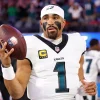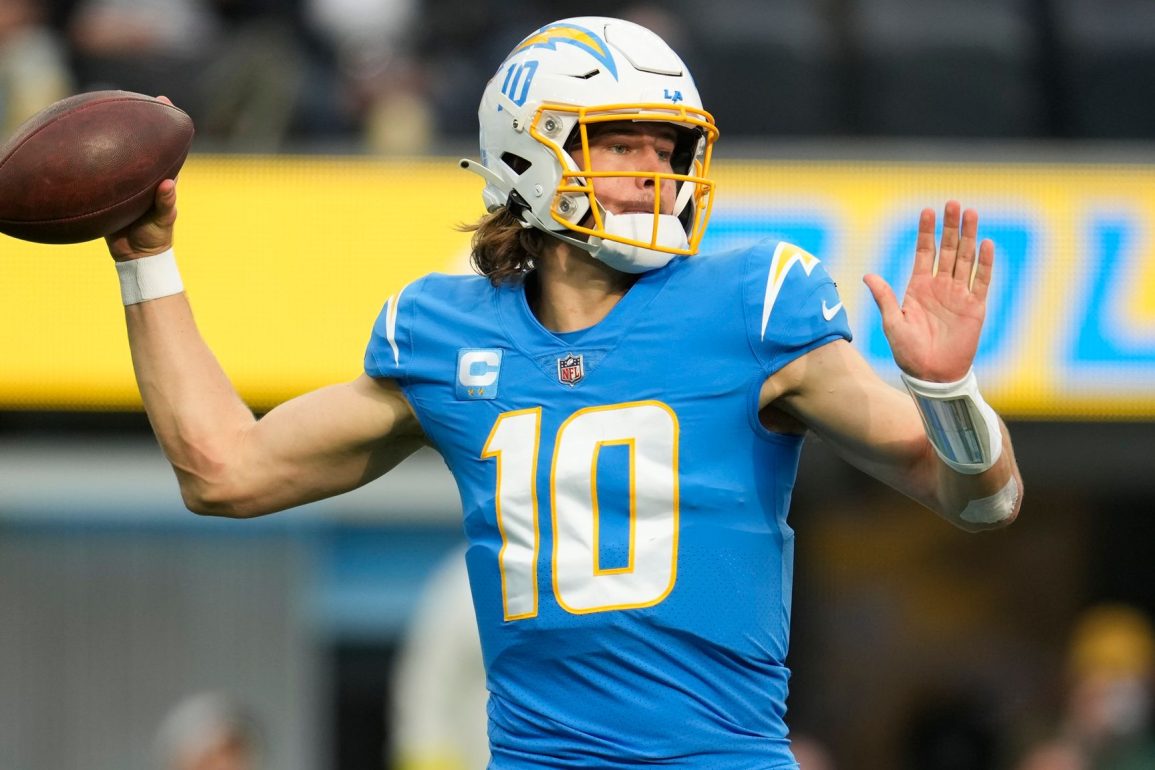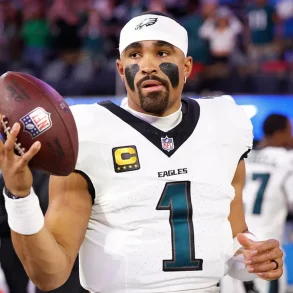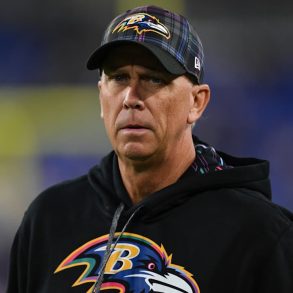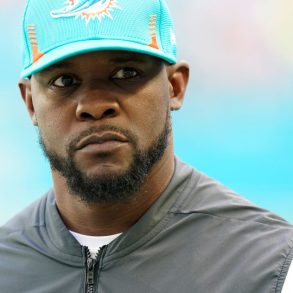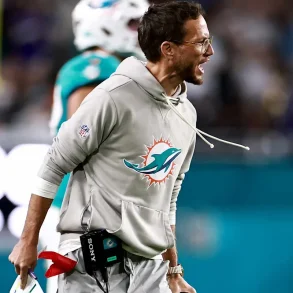The Los Angeles Chargers faced a devastating blow to their already dim playoff hopes in Week 14 of the 2023 NFL season. Entering the game with a 5–7 record, the team needed a win to keep postseason dreams alive. However, in a lopsided loss to the Denver Broncos, those hopes all but vanished. Making matters worse, quarterback Justin Herbert suffered a season-ending fracture in his throwing hand early in the game.
The injury symbolized a disastrous campaign for a team that had entered the season motivated to redeem its humiliating 2022 playoff exit. To top it off, SoFi Stadium, supposed to be the Chargers’ home field, was filled with more orange than blue, as Broncos fans dominated the stands.
Despite the bleak performance on the field, the organization provided one moment of levity at halftime by inducting legendary tight end Antonio Gates into the Chargers Hall of Fame. The loudest cheers of the day came not for a touchdown or a big play, but for Gates’ heartfelt speech, especially when he paid tribute to San Diego.
The city embraced Gates when he joined the team as a 22-year-old with no football pedigree, and fans returned that love even now. His acknowledgment of San Diego received a raucous ovation, while the mention of Los Angeles and team owner Dean Spanos drew boos, a reflection of ongoing resentment over the team’s relocation.
Gates’ path to NFL greatness was far from traditional. After leaving high school, he initially accepted a football scholarship at Michigan State under coach Nick Saban. However, when Saban wouldn’t allow him to play both football and basketball, Gates transferred, eventually ending up at Kent State, where he starred on the basketball court.
He led the team to an Elite Eight appearance in the 2002 NCAA tournament. Despite his college basketball success, Gates wasn’t viewed as NBA material due to his size. At 6-foot-4, he was undersized for a power forward, prompting him to turn his attention back to football, a sport he hadn’t played in college.
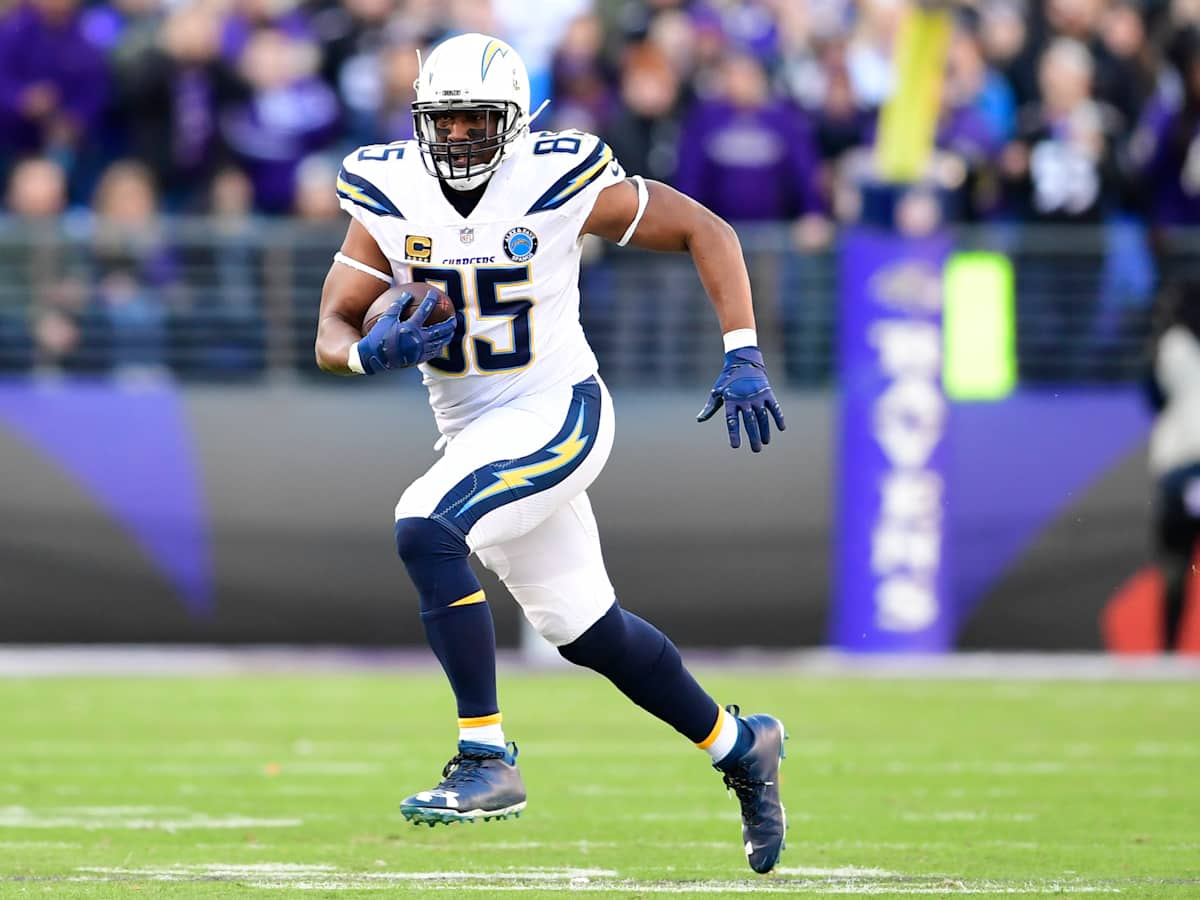
From Undrafted Long Shot to Legendary Tight End Who Redefined the NFL Position
With no college football experience, Gates went undrafted but was picked up by the Chargers in 2003. He wasn’t expected to make the team, but his raw athleticism quickly stood out. During training camp, he roomed with another undrafted player, linebacker Stephen Cooper.
The two believed only one of them would survive the final roster cuts. When they found out both had made it, they celebrated quietly in their hotel room, mindful of teammates who hadn’t been as fortunate. Gates would go on to become one of the most dominant tight ends in NFL history, changing the perception of what the position could be.
Gates brought a basketball player’s mindset to the football field, using rebounding techniques to box out defenders and make contested catches. Current Chargers head coach Jim Harbaugh called him the first tight end who truly became the focal point of an offense, often catching double-digit passes in a single game.
His innovative play style inspired a new wave of athletes, particularly basketball players, to consider careers in the NFL. Notably, Jimmy Graham followed in Gates’ footsteps and also became an elite tight end after transitioning from college basketball.
Gates’ toughness was legendary. Teammates and coaches often recalled his ability to play through serious injuries. One standout moment came during the 2007 playoffs, when Gates played in both the divisional and conference championship games with a dislocated toe that had required him to leave the wild-card game on a medical cart.
Shawne Merriman, a former teammate, recalled watching Gates receive pain-numbing injections before games, amazed at his commitment to the team despite the pain. These moments helped solidify Gates as more than just a great player; he was a respected leader and competitor.
Loyalty, Legacy, and a Vision to Reinvent Professional Spring Football in America
While the Chargers have had many superstars, Philip Rivers, LaDainian Tomlinson, Junior Seau, Dan Fouts, and Kellen Winslow among them, few remained with the team their entire careers. Gates was one of the rare exceptions.
His 16 seasons, including 14 in San Diego, gave fans a player they could rally around even as the franchise made unpopular moves, including relocating to Los Angeles. His connection to San Diego remains especially strong because of his loyalty and humility, making his Hall of Fame enshrinement a point of pride for the city that still considers him “one of their own.”
Meanwhile, the United Football League (UFL) is undergoing major changes. Entrepreneur Mike Repole has joined the ownership group and assumed full control of business operations. Known for building successful brands like Vitaminwater and BodyArmor, Repole is bringing that same strategic mindset to the league.
He plans to relocate at least two and potentially up to four teams by 2026. Columbus, Ohio, has already been confirmed as a new home market, with games set to be played at the 21,000-seat Historic Crew Stadium. Repole’s main focus is enhancing the game-day atmosphere, which has suffered due to large, sparsely filled venues.
Repole criticized the lifeless vibe of current UFL games and emphasized the importance of smaller, packed venues to improve energy and perception. While St. Louis has succeeded with attendance (averaging nearly 30,000 fans per game), most other markets have struggled to draw crowds.
He aims to boost average attendance to 10,000–15,000 per game and sees it as a personal failure if that doesn’t happen. In the short term, teams will still train in Arlington, Texas, but plans are in place to give teams more time in their local communities, enhancing fan connection and visibility.
Repole has outlined ambitious plans: growing the UFL to 10–12 teams within five years and ultimately reaching 16 teams within a decade. Achieving this would position the UFL as a true spring football counterpart to the NFL.
He’s confident that the league’s solid financial support and media alliances with FOX and ESPN offer a stability that past attempts at spring football did not have. The 2026 season will mark the UFL’s third consecutive year, a rare achievement in a space where most leagues have quickly folded. Repole’s bold, entrepreneurial leadership may signal a new era for alternative professional football.
